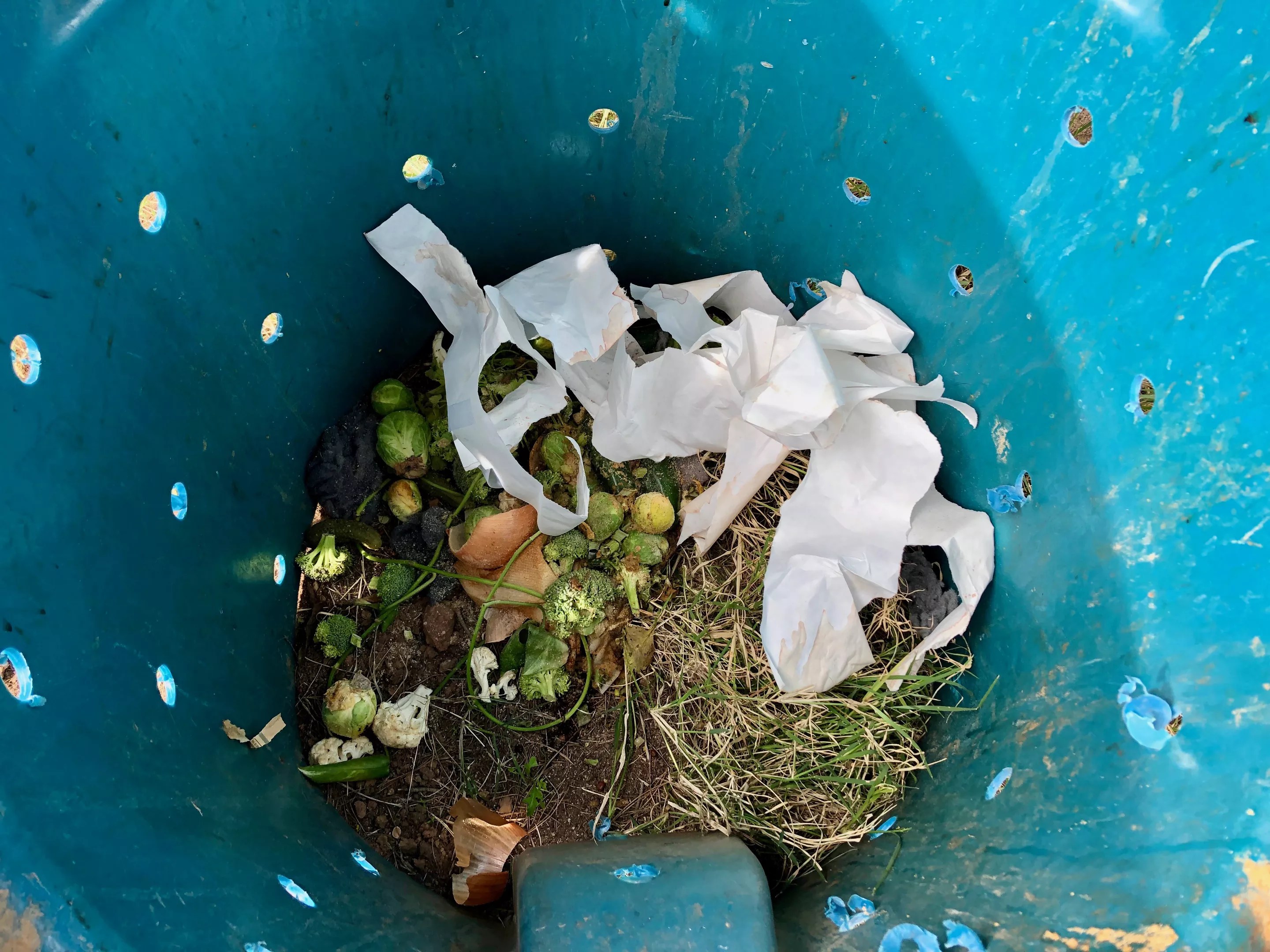
Lauren Cusimano

Audio By Carbonatix
A half-chewed chimichanga here, cold pizza in the trash there, or a bunch of rotten brown bananas: It all adds up.
Each year, Arizona trashed $9.5 billion of food across the state or 1.7 million tons, as No. 1 in the nation for sending food to the landfill.
North Dakota was No. 2 on the list with $1 billion in food waste and Hawaii was No. 3 with $1.6 billion. There were more factors than the total value of food wasted for the rankings, such as the share of food donated or recycled.
More than 78% of food was thrown out while 18% of food is recycled and 2.7% donated, according to research compiled by LawnStarter, an online matchmaking business for landscaping that dabbles in economics.

A Dumpster outside the United Food Bank in Phoenix.
Lauren Cusimano
Arizona has the highest share of food wasted and the lowest share recycled across the country. It was among the bottom three nationwide for food donations. LawnStarter compiled data from nonprofits Food Rescue US a mobile app that sends food to the needy, food waste analysis organization ReFED, advocacy group U.S. Composting Council, and the U.S. Environmental Protection Agency.
“It seems like there’s a little bit less consciousness in Arizona. It’s residential, restaurants and in the fields,” said LawnStarter spokesperson Jeff Herman.
The coronavirus pandemic and related restaurant closures accounted for an uptick of food rotten in agriculture, Herman said. Nationwide about 40% of food is thrown away on average.
“When you go to a restaurant and get take out then throw it away, that’s wasted,” he said. “You can repurpose it.”
During a study of its residential garbage, the city of Phoenix found that 14.7% of its trash was food, comprising more than 56,400 tons. About 30% of Phoenix’s trash was compostable yard waste.
Across the county, about 30% of residential trash is already food and yard scraps, according to one U.S. Environmental Protection Agency estimate.
In 2017, the city opened a composting facility along 27th Avenue which can handle 55,000 tons of compost each year.

Composting is one way to reduce food waste.
Lauren Cusimano
California biofuel manufacturer Imperial Western Products diverts 1.23 million tons of food waste from landfills in Arizona such as used cooking oil from restaurants, which is turned into biodiesel.
Food waste spikes during the holidays when bellies are full and plates overflow with leftovers. About 200 million pounds of turkey – the equivalent of 13.3 million average-sized birds – are trashed after Thanksgiving, according to the Natural Resources Defense Council.
There are efforts to reduce food waste in Phoenix such as the zero waste program at Arizona State University, which set the goal of diverting 90% of its dining hall waste from landfills. The university already recycles its fryer oil for biodiesel and donates leftover food to Arizonans for Children. That food goes to children in foster care.
Waste Not is a nonprofit in Scottsdale which connects its driver network with catering companies, resorts, and event venues. It delivers food the same day using nonprofits that serve food to residents. Waste Not diverted 2 million pounds of food from landfills last year.